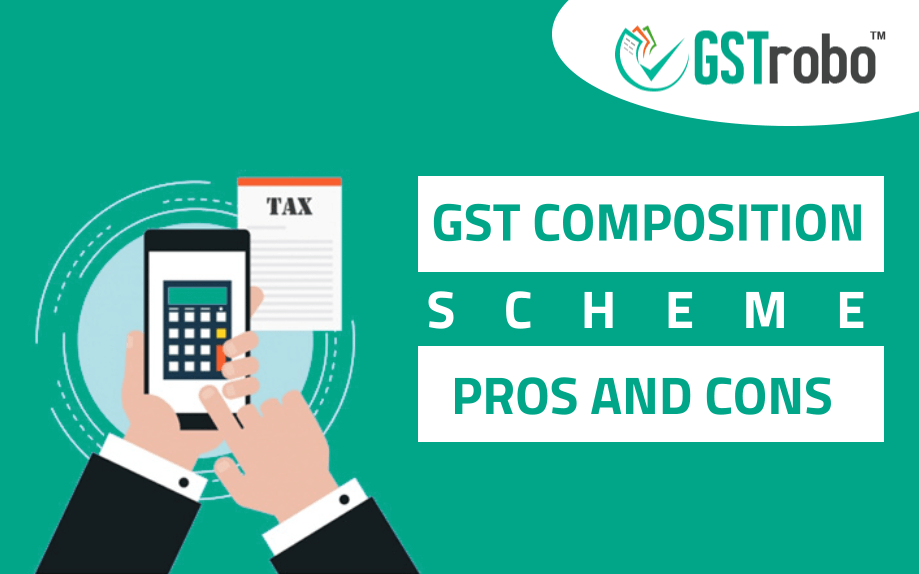GST Composition Scheme – Pros and Cons
For small business proprietors, the composition scheme under GST was presented as an alleviation system so they could pay lower GST sums at a fixed rate on their turnover. And registering themselves under a composition scheme helps them to sidestep monotonous compliances and kills the requirement for complex desk work. Thus, it is important that a business has the right perspective related to the composition scheme under GST. So, for you, I have gathered all the possible pros and cons of the GST composition scheme in this blog.

GST Composition Scheme – Eligibility
The turnover of the taxpayer helps in determining the eligibility for the composition scheme. If a taxpayer had a yearly turnover of INR 1.5 crores in the past fiscal year, he or she is eligible for the GST composition scheme. However, for North-Eastern states, the breaking point for composition scheme eligibility is INR 75 lakhs. Here, it ought to be noticed that the total turnover will incorporate the turnovers of all businesses enlisted under a similar PAN. Thusly, a PAN holder can either enroll as a normal taxpayer or a composition scheme holder under GST, but not both at the same time.
GST Composition Scheme – Non-Eligibility
Here is the list of taxpayers who is not eligible for the composition scheme under GST:
- Supplier of Exempt goods or/and services
- Pan Masala, ice-cream or tobacco manufacturer
- Casual Taxable Person (CTP)
- E-commerce Operator
- Non-Resident Taxable Person (NRTP)
- Service provider (Not including restaurant and other related services)
GST Composition Scheme – Pros
Here is the list of pros that you can reap after registering for the GST composition scheme:
- High liquidity as the business will pay less GST.
- More funds for venture or operational purposes.
- Fixed GST rate when compared with normal sellers.
- Reduced compliance and paperwork.
GST Composition Scheme – Cons
You may have to face these cons if you register for the composition scheme under GST:
- Input Tax Credit (ITC) will not be available.
- Restriction on inter-state transactions.
- Supply of exempted goods or/and services cannot be carried out.
- Cannot establish an e-commerce business.
